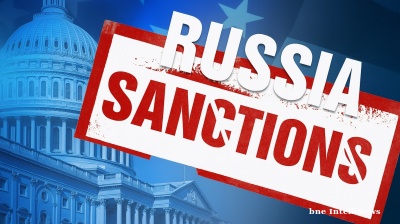After making Herculean efforts to pass the so-called anti-Kolomoisky banking law that was signed on May 18 and cleared the way to restart a new $5bn International Monetary Fund (IMF) standby agreement (SBA) this summer, the renewed deal already seems to have gone off track.
The ink was barely dry on the SBA when the widely respected governor of the National Bank of Ukraine (NBU) Yakiv Smolii was forced out, threatening the independence of the NBU – another red line for the multinational lender. As bne IntelliNews wrote in an op-ed after the IMF deal was closed “Here is the money but we don't trust you”, the independence of the NBU is another key requirement for the deal. Oligarch Ihor Kolomoisky has been battling the NBU in an effort to regain control of PrivatBank that was nationalised in 2016. Undermining the independence of the NBU has been part of that battle and Kolomoisky has been acting unimpeded to the point where the NBU branded attacks on its staff has a “terror” campaign and called Kolomoisky out by name.
These fears were thrown into stark relief after the IMF resident representative to Ukraine, Goesta Ljungman, was asked if the deal had gone off the tracks this week. “I will refrain from answering. We have a programme with Ukraine. Under this programme it made a number of commitments,” Ljungman said.
“So Ukraine’s IMF programme is off-track,” said Evghenia Sheptova, an analyst with Oxford Economics.
Ukraine has already received the first $2bn tranche of IMF money but the remaining $3bn was already in doubt after Smolii was ousted. The latest comments only add to fears that the next tranches will be delayed.
Maintaining good relations with the IMF is critically important this year, as funding Ukraine’s debt obligations and raising money to cover a massive increase in spending to alleviate the impact of the coronacrisis is impossible without the IMF’s help.
Ukraine is going to struggle to finance its current budget. It has some $12.5bn in domestic and external debt to repay this year and also needs to fund a huge increase in the budget deficit.
In April the government decided to more than triple the deficit from UAH96 to UAH298bn, or from approximately $3.5bn to more than $10.7bn. That means that almost every fourth hryvnia of state budget expenditures in 2020 needs to be financed by attracting new debt.
The Ukrainian government is now aiming to attract UAH653bn ($23.6bn) – twice the amount of debt financing. And funding from international partners (mainly the IMF) has been the main reason that the Finance Ministry has been able to implement this plan so far.
But raising that money looks to be increasingly difficult. The Ministry of Finance managed to get at $2bn Eurobond away this week maturing in March 2033 at a 7.253% yield to maturity after the initial offer was cancelled after Smolii quit. More Eurobond issues remain a possibility but their pricing depends heavily on the state of the relations with the IMF.
More worryingly, foreign investors are leaving the domestic bond market. Last year Ukraine attracted some $5bn in foreign investment into the Ministry of Finance hryvnia-denominated OVDP treasury bills (OVDP) after the market was hooked up to the Clearstream international payment and settlement system. However, foreigners have been selling since March as the country was hit by multiple shocks. The share of foreigners in the OVDP market is down from a peak 15% in March to 11% now.
Ukraine's Finance Minister Serhiy Marchenko was quick to try to shore up confidence, telling Reuters on July 29 that the IMF deal remained “on track.”
"Ukraine continues to fulfil its commitments under the IMF memorandum," Marchenko said.
Smolii's successor, Kyrylo Shevchenko, has also tried to reassure investors and the IMF about stability and keeping the central bank independent.
News

Japan to recycle soiled adult diapers
Traditionally, the soiled products are burned with general waste, but their high moisture content hampers combustion and reduces energy efficiency.

US, Egypt, Qatar, and Turkey sign agreement to end Gaza war at Sharm El-Sheikh Summit
The US, Egypt, Qatar and Turkey signed a binding peace document on October 13, guaranteeing a ceasefire in the Gaza Strip, marking what President Trump called “perhaps the greatest achievement” of his presidency.

770,000 migrants told to leave Russia
Deportation regime activated for largely Central Asian nationals amid crackdown critics describe as xenophobic.

Pakistan, Afghanistan exchange fire along contested Durand Line
Pakistan has claimed responsibility for killing over 200 Taliban fighters in a series of precision strikes along the contested Durand Line.




